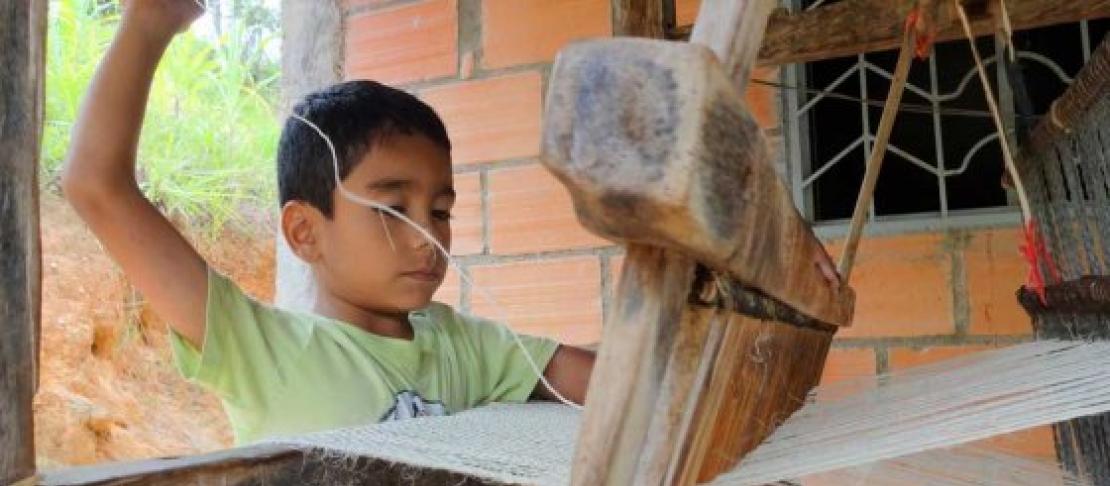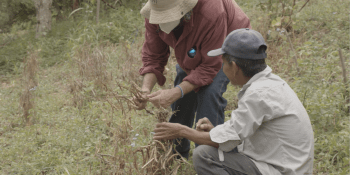The two faces of fique

The house in Piedra Gorda is like Arachne’s workshop, straight out of the Greek myth. Every member of the family is engaged in some part of the weaving process: combing out the tangles from the fresh fibers, spinning the string, winding the shuttles, or manning the giant loom itself. The operator’s feet pump up and down as he bends over his work, skin dusty with stray broken fibers, shuttling to the left, to the right, and back to the left.
The cultivation and processing of fique or sisal fiber has been a way of life in Piedra Gorda, a village in Santander, Colombia, for hundreds of years. Researchers from Bioversity International and the CGIAR Research Program on Climate Change, Agriculture and Food Security (CCAFS) recently spent time in Piedra Gorda to identify sources of vulnerability to climate change impacts and barriers to the adoption of climate-smart agriculture. Climate-smart practices that promote climate change adaptation, mitigation and food security can be something as theoretically simple as livelihood diversification.
A pattern of vulnerability
Fique production may be a strong tradition, but as a source of livelihood it grows continually less viable. Javier and his family weave netted sacks for the storage of foodstuffs, but plastic sacks have almost replaced the fique entirely thanks to their cheapness and abundance. Javier explains, “For the time I spend making them, I don’t sell the sacks for a very good price. But that’s what we know how to do. So we keep doing it.”
When asked what he cultivates apart from fique, Javier rattles off the usual list of Colombian staple crops: Maize, cassava, beans and plantain. He admits, however, that he grows them only half-heartedly: “I plant these things for my family but sometimes I just lose it all because it doesn’t rain.”
Read the full story, "Colombian sisal growers weave a more climate-resiliente future," on the Thomson Reuters Foundation blog.
This story was originally published in Spanish in El Espectador, a Colombian newspaper.
Related stories on the CCAFS blog:
Jorge Daza's marvellous biogas machine
Farmers map strategies to adapt to climate change in Colombia



